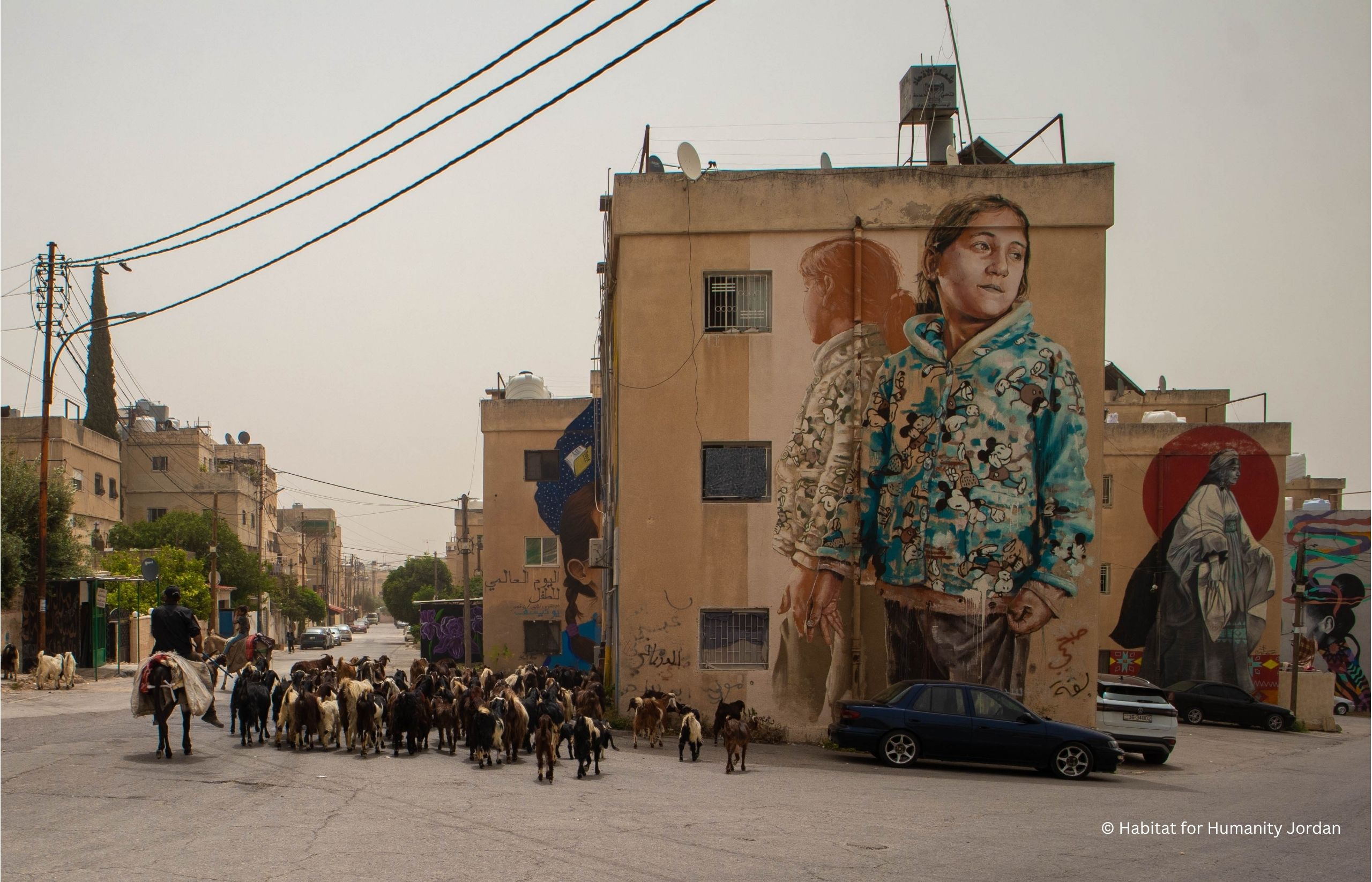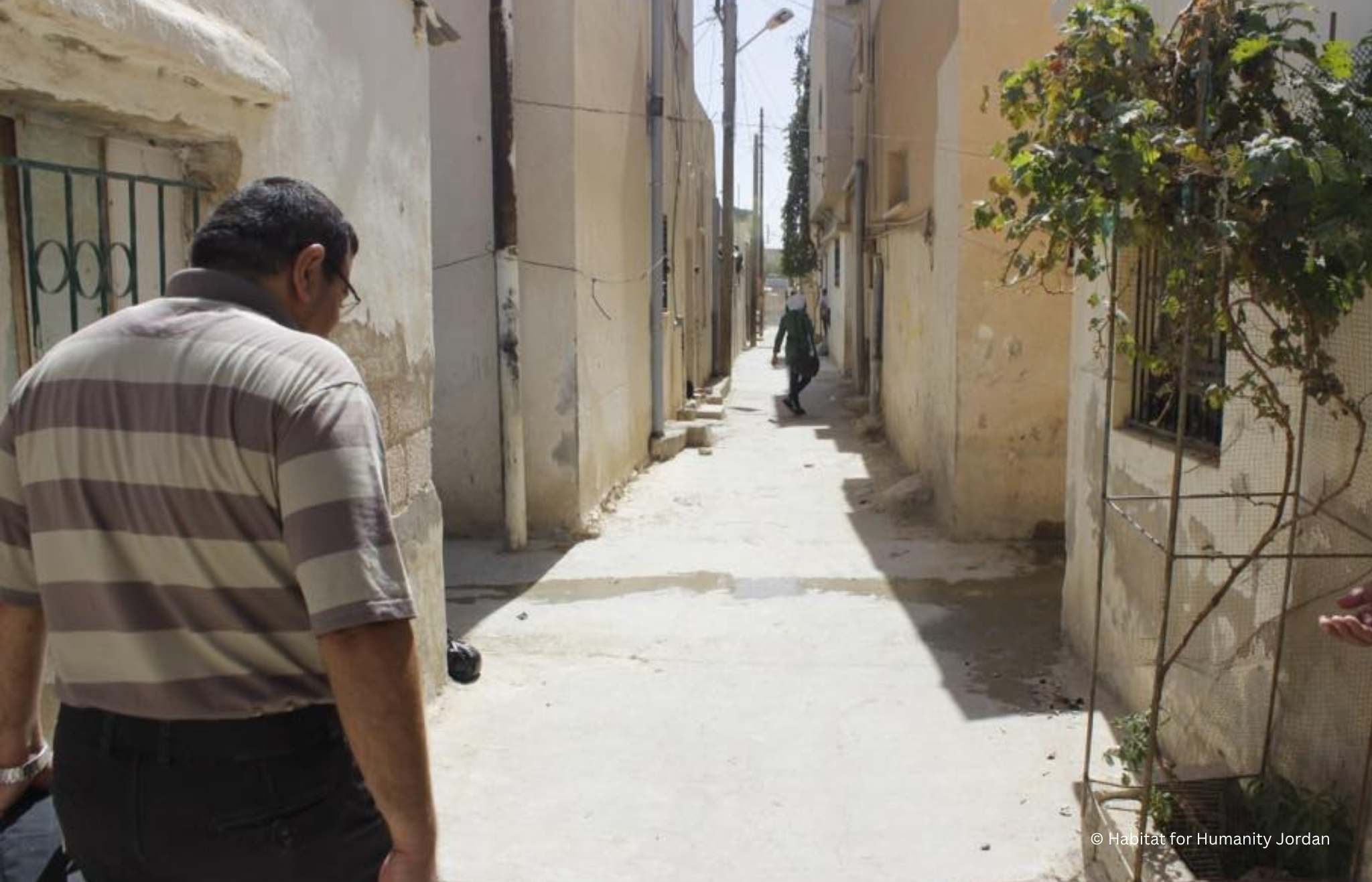In this section
In this section
“We need energy for lighting, heating, for fans, to do laundry, for the boiler for hot water… These are the most basic needs for energy we can’t live without.” – Syrian woman, 29, living in Marka, Amman
Syrian refugees in Jordan rely on energy for a wide range of essential household necessities. Lighting is crucial, charging devices such as mobile phones and laptops is vital for staying connected, and refrigeration is necessary to preserve food. Despite restrictions on formal employment, some refugees engage in freelance and home-based business activities, requiring electricity for computers, printers, and other equipment. During winter, energy is essential for heating homes and water, while in summer, it is used for fans and air conditioning.
Energy is a critical component of everyday life, but unaffordable costs – a result of high tariffs and poorly insulated homes – represent one of the biggest issues for Syrian refugees living in urban areas.
Challenges of implementing energy-efficient technologies
“Electricity bills are increasing and are a huge financial burden on refugees… Now we are overwhelmed by large debts. This is very frustrating as our income is not sufficient to meet our basic needs.” – Syrian man, 63, living in Marka, Amman
While access to grid electricity is reliable, many refugees find it unaffordable. Unlike Jordanian citizens, they are not eligible for subsidised tariffs, and their unstable incomes make it difficult to keep up with rising costs. Some people have explored ways to reduce their bills by minimising consumption through behaviour change and energy-efficient technologies such as LED lights.
Implementing energy-efficiency measures, such as solar panels or insulation, could provide significant savings but is fraught with obstacles. Tenants often rent older buildings that are not suited for modern energy-saving upgrades. Landlords, reluctant to invest in costly improvements, typically leave tenants to invest in measures themselves. This is only if tenants get permission and can afford them but, given that tenancy contracts are often short-term and insecure, few are willing to take the risk.
“If I were the landlord I could implement these measures, but I can’t because they are expensive and I’m not allowed to work here. The landlord is not interested, he didn’t even install energy-saving light bulbs, I did this myself.” – Syrian man, 65, living in Sahab, Amman
“I control my consumption by turning on electrical devices only when I need them, like the lights, boiler, and heater. I make regular maintenance to the home boiler for it to function as efficiently as possible.” – Syrian woman, 33, living in Wadi Seer, Amman
An uncertain outlook
Being trapped between high energy costs and the inability to implement efficiency measures exacerbates the financial struggles of these communities. Implementing energy-efficient technologies presents significant challenges: high costs mean that landlords are hesitant to invest in improvements whilst refugee tenants lack the financial capacity and rental security to install such technologies themselves.
Addressing this issue will require a collaborative effort across stakeholders including the government, international organisations, and local communities. Tax breaks or subsidies could encourage landlords to invest in energy efficiency upgrades, and offering refugee tenants affordable financing options and training on energy-saving practices could reduce energy expenditure.
The outlook for energy efficiency in refugee communities in Jordan remains uncertain. Without significant support, many refugees will continue to struggle with high energy bills and poor living conditions. By working together, stakeholders can create a more sustainable and equitable energy landscape for refugees in Jordan, enabling them to play an active role in conserving resources and contributing positively to the country's economic and social development.
The article is written by Rayan Shehada, Research Associate at UNITAR/GPA. Learn more about the READS Programme here.
Last updated: 24/09/2025

